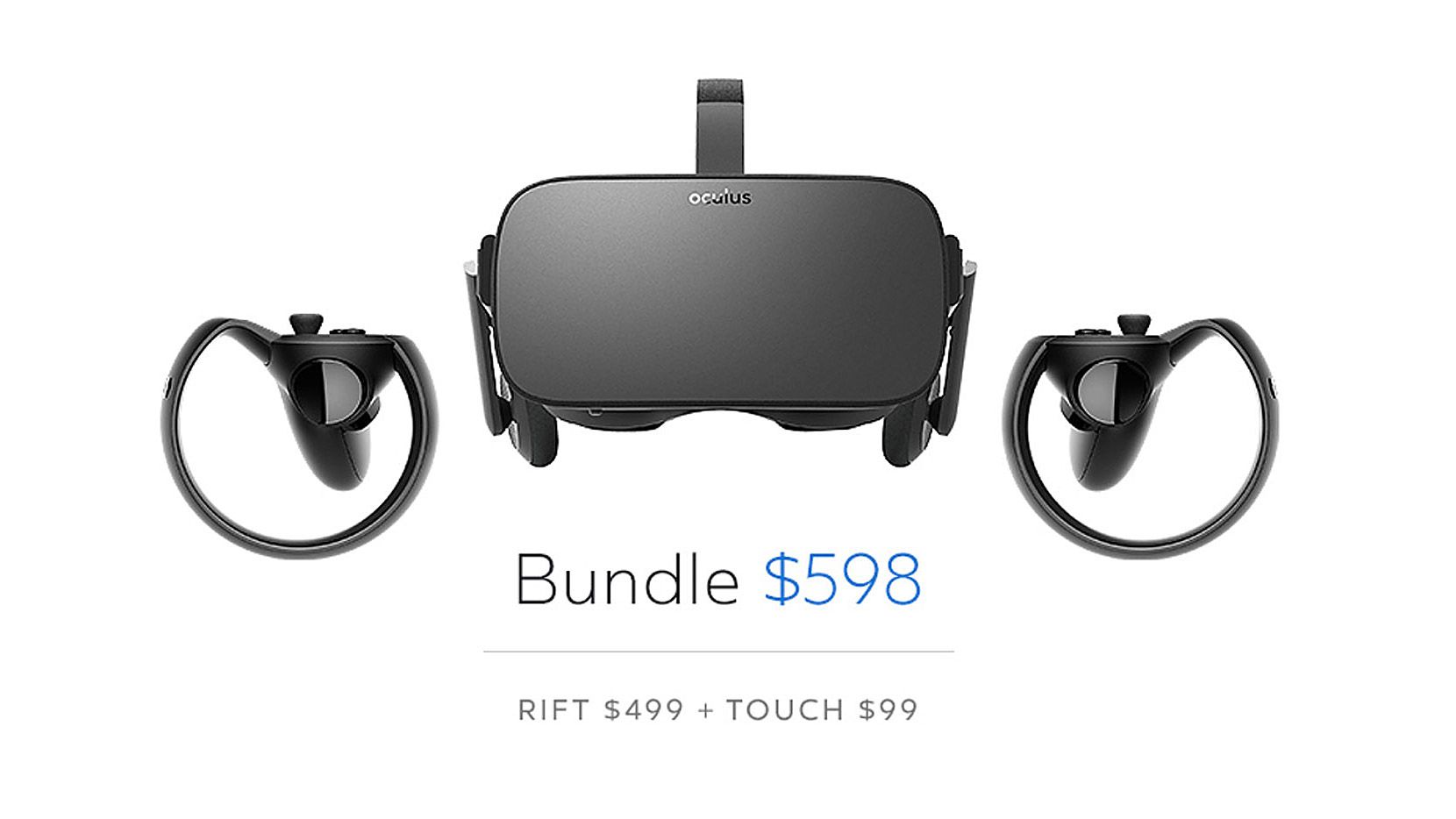Yesterday, Oculus Rift received a hefty, surprise price cut that knocked the VR headset and its Touch controllers from $800 USD to $600. The headset itself has dropped to $500, while Touch will now cost $100, down from $200. You can also pick up an additional Oculus Sensor for $59.
The news came from Epic's keynote at GDC 2017, where Oculus' co-founder Brendan Iribe said the following:
"There are two driving components to get VR out to as many people as possible," Iribe told attendees. "One is content... We think we have content pretty well covered now. There are over 100 touch titles available today, hundreds more Rift titles and a lot more coming. There's thousands of hours of gameplay available right now on the Oculus platform.
"The next component to driving VR success is lowering the barrier to entry and making it more affordable to getting everyone into VR. To achieve this, our operations team has been working with suppliers to drive down the cost.
"We're thrilled to bring down the price. There has never been a better time to get into VR and we're just getting started. Oculus and Facebook are committed for the long term. We're going to be investing in VR for decades to come."
In an interview with GameSpot, Oculus VP of content Jason Rubin, in the wake of the price drop announcement, was asked whether or not the headset is now selling at a loss. To this, Rubin responded:
"We don't discuss specific pricing, but we've been very clear from the beginning that making money on early units is not what we worry about. What we worry about in the long run is getting VR to the widest possible number of people. If you think about Facebook as a company, Facebook was not worried when it had its 50th user--whether that user was monetizing, in the parlance of Silicon Valley. They lost a ton of money--not that we are--but Facebook did to get to scale. Once they got to scale, look at the business that's been built."
In the same interview, Rubin went on to talk about the importance of driving the price of the Rift and PC hardware down, and how it can have a positive snowball effect on the Oculus business going forward. Rubin, specifically, said the following:
"[A]s we push PC pricing down, more people will walk out of the stores after a demo with the hardware. That means more people will be buying software, which means good things for developers, which means more developers come, which means more consumers come to keep bringing their price down, [to] keep filling the store."
"Mark [Zuckerberg] believes that VR is the next computing platform. For it to be the next computing platform, it has to be in large scale, scale like mobile phones. To get to that, we have to push on price. We have to push on content. So that's really what's important to us."
Not long after the announcement of the price-cut, HTC, Oculus' main competitor in the PC VR space, responded by explaining that the Vive's performance at market to date doesn't call for a price cut. The company told Upload VR the following:
"We don't feel the need to cut the price of Vive. We've had incredible success, and continue to see great momentum in market."
To date, neither HTC nor Oculus have released official sales figures for their hardware. Meanwhile, in the console VR space, Sony has revealed its numbers for PlayStation VR, which has sold over 900,000 units to date and has beaten sales projections.

